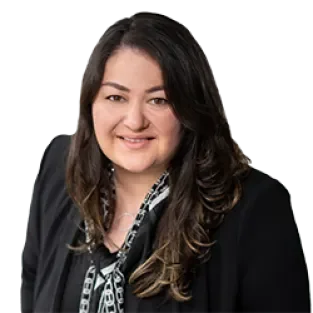ASAP
New York City Commission on Human Rights 2025 Annual Report Reveals Operational Priorities
At a Glance
- NYCCHR’s annual report summarizes and highlights the agency’s achievements in the past fiscal year and identifies the NYCCHR’s goals for the coming year.
- This year’s report indicates enforcement of the NYCHRL is expanding in scope and intensity.
The New York City Human Rights Law (NYCHRL) is one of the broadest and most comprehensive civil rights laws in the world. The NYCHRL prohibits discrimination in employment, housing, and public accommodations and delineates well over a dozen “protected categories” of people who are protected from discriminatory acts. The New York City Commission on Human Rights (NYCCHR) is a New York City Agency charged with enforcement of the NYCHRL. In addition, the NYCCHR is tasked with educating New Yorkers about the NYCHRL and its regulations. To that end, the NYCCHR has, since at least 2002, published an annual report that summarizes and highlights the NYCCHR’s achievements in the past fiscal year and identifies the NYCCHR’s goals for the coming year. Consequently, the NYCCHR’s annual report is a significant document that identifies the NYCCHR’s operational priorities and signals New York City employers about how to anticipate likely enforcement actions. This article summarizes major insights gleaned from the NYCCHR’s 2025 annual report.
Major Legislative Changes
In fiscal year 2025, the NYCCHR collaborated with the New York City Council, the mayor’s office and sister administrative agencies to push for passage of two major legal updates to the NYCHRL. The first led to amendment of the Fair Chance Housing Act, which prohibits nearly all housing providers—including landlords, brokers, co-ops, and condos—from discriminating against renters or buyers based on arrest or conviction records. According to the NYCCHR, this amendment addresses a critical barrier to housing for over 800,000 New Yorkers with conviction histories. The enactment establishes guidelines for housing providers that conduct criminal background checks, limiting when and how conviction history can be considered.
The NYCCHR also pushed for the passage of amendments to the NYCHRL expanding workplace lactation protections for employees who need to express milk. These amendments require employers to post and distribute lactation policies. They also align the NYCHRL with state law by mandating paid breaks for lactation, reinforcing workplace equity and caregiver rights.
Beyond these amendments, the NYCCHR actively participated in several New York City Council hearings and provided testimony on: (i) pay transparency, pay data reporting for private employers, and caregiver protections, addressing perceived workplace disparities in pay rates, particularly by gender, and (ii) along with the Small Business Services administration, proposed amendments to the NYCHRL to ensure compliance with disability protections under the NYCHRL.
Enforcement & Complaints
The NYCCHR also highlighted enforcement actions it brought against New York City employers alleged to have violated the NYCHRL. In fiscal year 2025, the Commission handled a record 15,507 inquiries from the public via phone, email, letters, and in-person visits. These inquiries primarily involved allegations of employment and housing discrimination. According to the NYCCHR, each inquiry is given personalized attention by a dedicated team that decides whether the complaint necessitates pre-complaint intervention, attorney review, or referral to sibling agencies and community resources. Where the NYCCHR determines that violations are ongoing, it offers early resolution opportunities to both parties before a formal complaint is filed. These interventions provide an opportunity to obtain expedited relief and help prevent escalation. If, however, the NYCCHR determines (or the complainant insists) that a formal complaint is warranted, then the case will proceed through the formal complaint process, followed by investigations that may culminate in litigation or settlement agreements. The NYCCHR insists that this approach fosters both immediate remedies and long-term accountability.
Of the 15,507 inquiries received, most complaints related to employment and housing discrimination. The NYCCHR received 662 disability complaints, 278 gender complaints, 154 race complaints, and 96 complaints alleging discrimination based on the complainant’s national origin. In addition, the NYCCHR noted that there was a surge of complaints (153 inquiries) where a complainant alleged that a business failed to follow the NYCHRL’s salary transparency requirements. The NYCCHR noted that many complainants were not native English speakers. It received 1,144 inquiries in 15 languages including 987 inquiries from Spanish speakers, 53 inquiries from Russian speakers, and 49 inquiries from Mandarin speakers.
The NYCCHR said it does not simply wait for complainants to call their hotlines to issue complaints or inquiries. Instead, the NYCCHR noted that it uses testing techniques to determine whether discrimination in housing, employment, or public accommodations is occurring. It reviews tips received through the NYCCHR’s stakeholders to determine which entities to test, and has hired testers to conduct telephone or online tests. Those scrutinized include potential employers, employment agencies, landlords/real estate brokers, restaurants, hospitals, gyms, stores, or other public accommodations whose responses are assessed to gauge whether they treat individuals differently because they are identified as belonging to a protected class. In fiscal year 2025, the NYCCHR conducted 1,346 tests, completing 1,182 of them. NYCCHR identified 2,271 potential claims through testing, including 288 claims of salary transparency violations, 231 claims of arrest record discrimination, 231 claims of conviction record discrimination, and 231 claims of credit history discrimination. The NYCCHR also found 305 instances of public accommodation discrimination where barriers made it difficult for individuals with disabilities to access business premises, and an additional 145 instances where public accommodation restricted access on the basis of gender.
As noted above, the NYCCHR undertook a wide range of enforcement actions and strategic interventions. The NYCCHR asserted that their focus was on resolving issues before they escalated, initiating 344 early interventions and resolving 327 of them without filing a formal complaint. Among the most frequently addressed issues were requests for disability accommodation such as flexible work schedules, accessibility modifications such as installation of accessibility features (grab bars, ramps, roll-in showers), and access to public spaces or medical offices. The NYCCHR also responded to concerns related to pregnancy and caregiver responsibilities, including work schedule adjustments or housing accommodations, and religious accommodation concerning schedule changes and policy modifications to support observance of faith practices.
Beyond early interventions, the NYCCHR filed 396 complaints this year. Employment-related cases accounted for 58 percent, housing for 31 percent, and public accommodations for 10 percent of the NYCCHR’s enforcement actions. Of these, 21 complaints were Commission-initiated, focusing on systemic violations across several protected categories and multiple jurisdictions. Employment discrimination remained a central focus, with complaints related to arrest and conviction records, salary transparency, and salary history. The NYCCHR also addressed housing discrimination, particularly targeting voucher-related bias and income-based barriers, as well as public accommodations discrimination based on disability, gender, and race.
The NYCCHR’s annual report also covered case outcomes, sharing that of the 374 cases resolved, 136 ended in settlements, 168 were administratively closed, and 68 resulted in probable cause findings. Only two cases were found to have no probable cause. The top-protected classes within these matters included disability, gender, retaliation, race, national origin, age, and sexual orientation.
The NYCCHR’s enforcement efforts had a significant impact, resulting in $17.46 million in total awards and penalties, which included $15.69 million in compensatory damages and $1.77 million in civil penalties.
Conclusion
The NYCCHR’s 2025 annual report makes clear that enforcement of the NYCHRL is expanding in scope and intensity. With a new administration focused on increasing equity in New York City, we can expect agency activity to increase. In addition, with new legal amendments, increased testing, hundreds of inquiries and complaints, and dozens of Commission-initiated investigations, employers and other covered entities under the NYCHRL must stay vigilant. Policies related to discrimination and accommodations should be reviewed and updated periodically to ensure compliance. The NYCCHR’s proactive approach means that even without a formal complaint, businesses may be subject to investigation. Staying informed and compliant is essential to minimizing legal risk and avoiding costly penalties.





